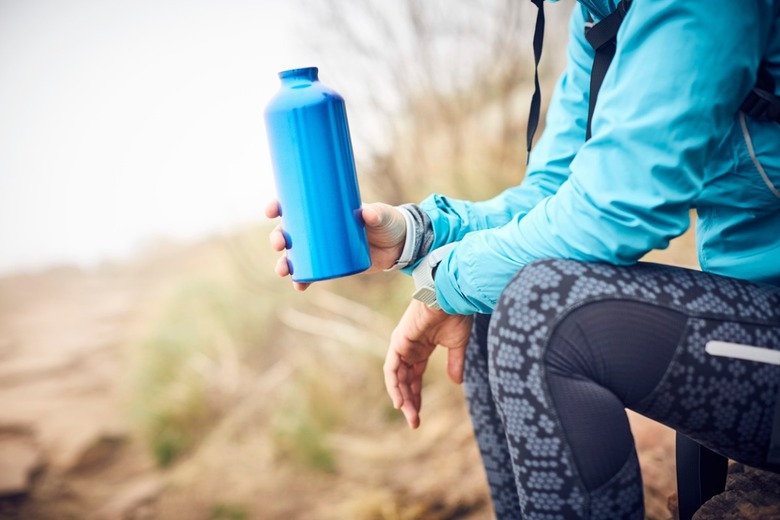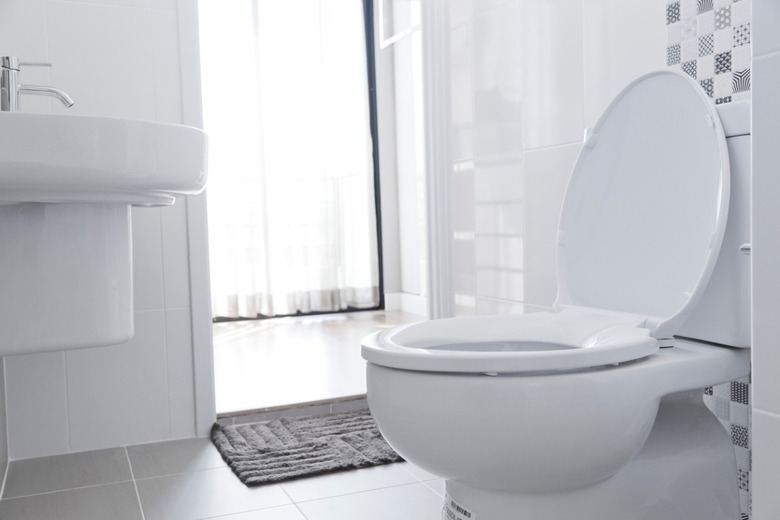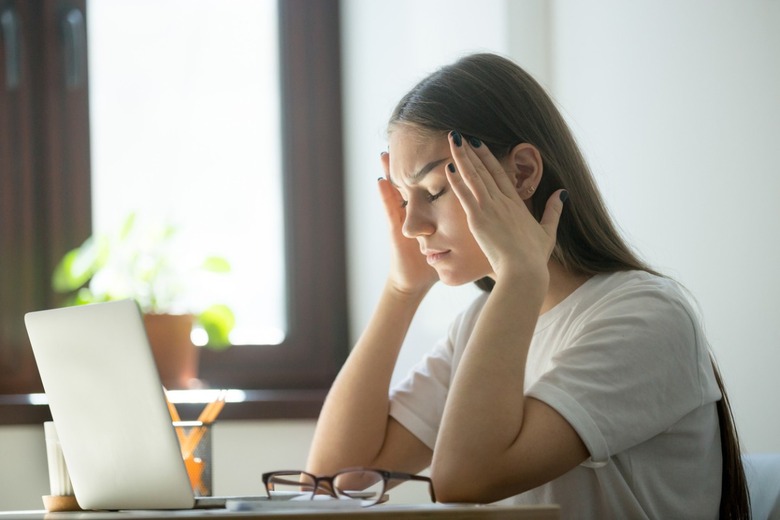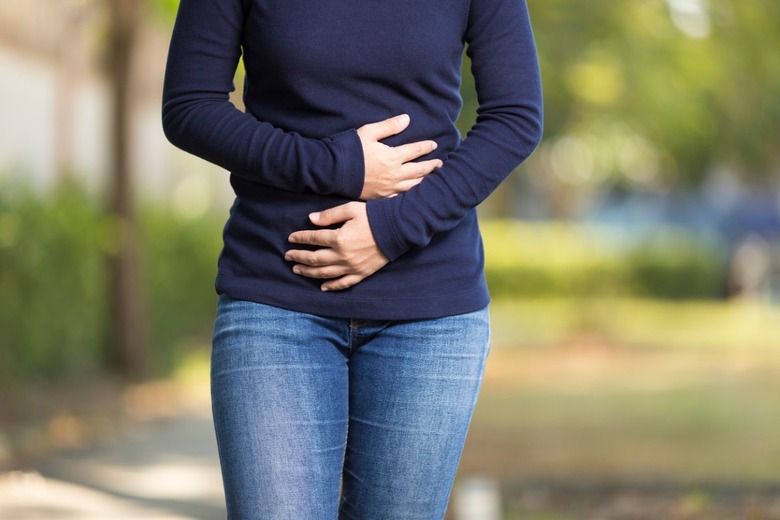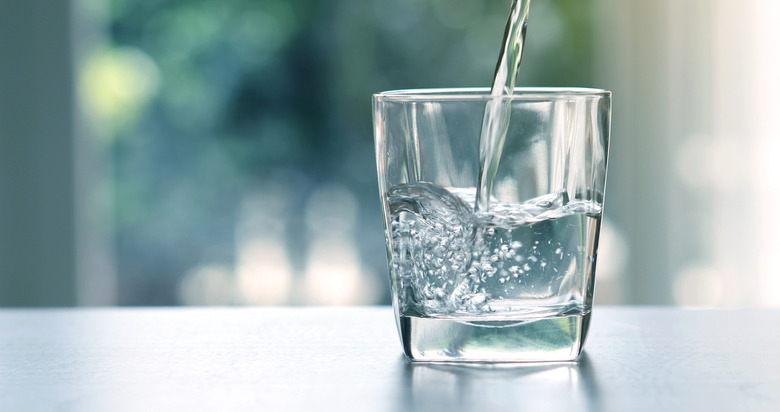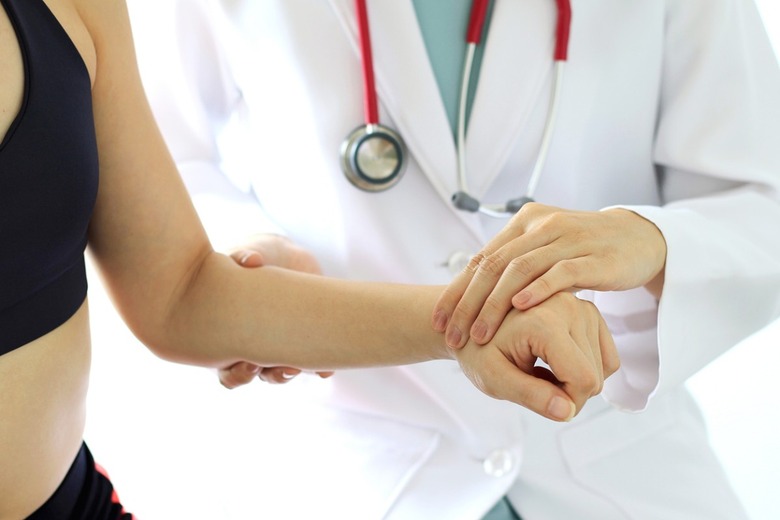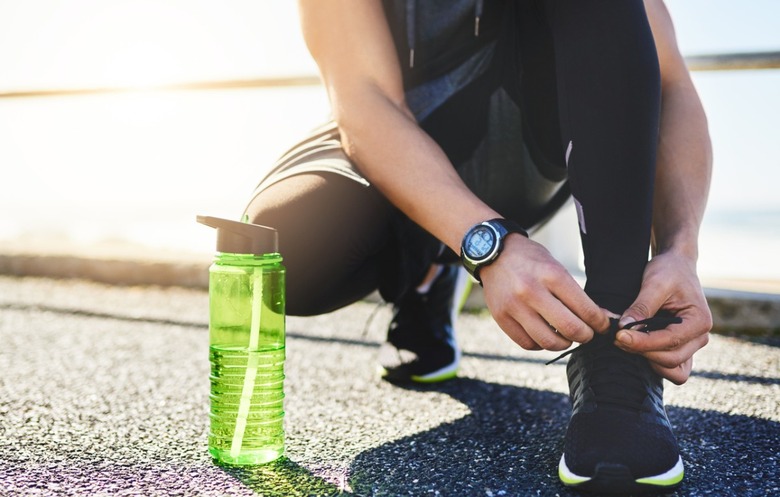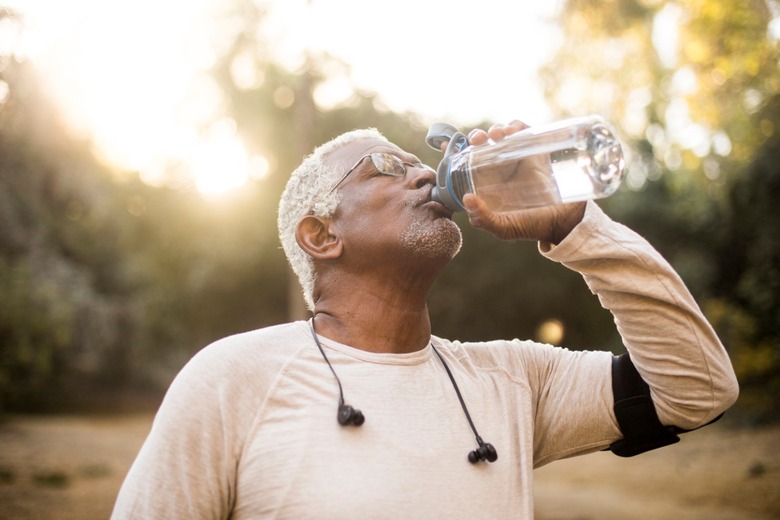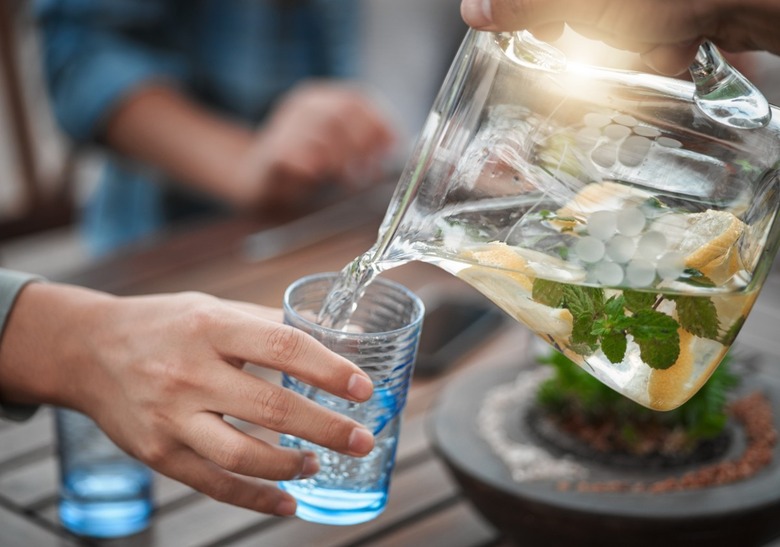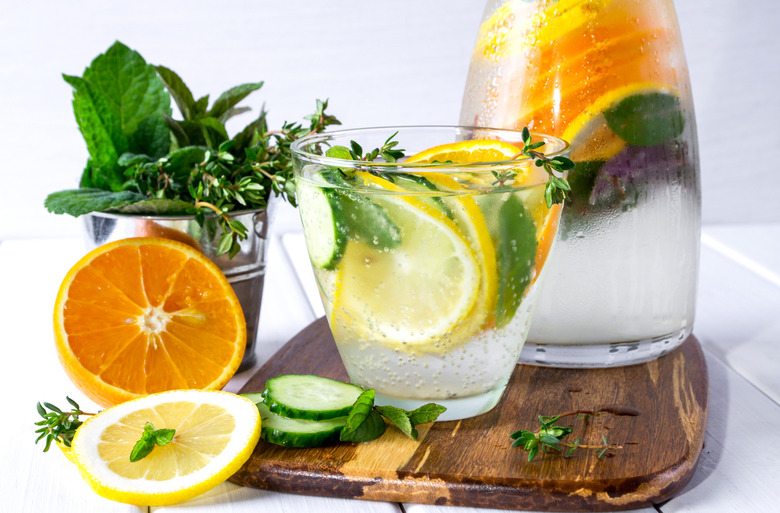How Much Water Is Too Much? We Asked 15 Nutritionists
S'well, Kleen Kanteen, Nalgene: These days, water bottles seem to rival cell phones as the most can't-live-without accessory. Many people stash water bottles not only in their gym bag, but near the bed, on their desk, in their car — and the thought of not having a cool drink within arm's reach can cause not just dry mouth, but sheer panic.
Most of us are aware that we aren't consuming as much water as we should be, but what about the opposite? Though not as common as dehydration, it is possible to drink too much fluid. Over-hydration happens when you ingest more water than your body can process and expel, and it can lead to serious problems.
So how much is the right amount a person should be drinking? We spoke with nutritionists and learned that the answer is not always so simple.
Jillian Greaves, registered dietitian and owner of Prevention Pantry, tells The Daily Meal, "There are a number of different equations dietitians use to calculate estimated hydration needs, but these are truly just a guideline." Julieanna Hever, MS, RD, CPT, and author of Plant-Based Nutrition (Idiot's Guide) and The Vegiterranean Diet adds, "Recommendations tend to vary because there are so many variables that come into play when it comes to optimal amounts of water."
We asked 15 nutritionists about all things hydration: the amount of water you should be drinking and what can happen when you over- or under-hydrate, as well as their tips for ideal hydration. Read on for their thoughts on how much water you should actually drink.
Why We Need Water
It's not a bad thing to be BFFs with your water bottle. Liz Weiss, MS, RDN, and host of the Liz's Healthy Table podcast and blog, tells The Daily Meal, "Every organ in our bodies needs water and every bodily function requires water." Jenny Friedman, registered dietitian at Nutrition With Jenny adds, "Water also plays a big role in keeping us nourished, healthy, and comfortable. It is involved in nutrient absorption and digestion, temperature regulation, and removal of waste from the body."
Most Americans Aren’t Drinking Enough
Although over-hydration can be a very serious issue (more on that in a bit), most nutritionists we spoke with agreed that not drinking enough water was a far more common occurrence. "Most Americans do not have the problem of over-hydration, but rather dehydration. One of the best ways to increase water intake is to commit to drink in the morning and to purchase a portable glass bottle. It could be one of the best 20 bucks you spend," explains Jackie Arnett Elnahar, RD with TeleDietitian.
Hydration Needs Are Based on Different Factors
Nutritionists agree that hydration is definitely not a one-size-fits all equation. "Water needs are always highly debatable, as they vary on so many individual factors, including your activity level, your environment (where you live), your level of health, your frequency of urination and bowel movements, and how much you perspire," says Amy Margulies, RD, CDE, and lead registered dietitian with Livongo. Jackie Arnett Elnahar adds, "If you are physically active, pregnant, breastfeeding, or on certain medications, you should drink more water."
How to Tell If You Are Adequately Hydrated
How to know if you're drinking enough? Check the toilet bowl. "The pee test is a sure-fire hydration test! Not glamorous, but insanely easy. Your pee should be the color of lemonade. If it looks more like apple juice, you need to hydrate more! If it is totally clear, you may be overdoing it," says Courtney Ferreira, a registered dietitian and personal trainer in Baltimore, Maryland.
Physical Signs You’re Dehydrated
How does your body let you know you're not drinking enough? "Inadequate fluid intake can cause headaches, dizziness, fatigue, and often a desire to eat to curb those symptoms," explains Courtney Ferreira. Nutritional therapy practitioner Catherine Crow adds, "When it comes down to it, the body's natural cravings for water and associated thirst are often the best indicators of (dehydration), especially considering the variable water content of foods obtained through the diet." Chelsey Amer, MS, RDN, CDN, and founder of CitNutritionally.com, warns, "Even minor dehydration can impact your focus, stamina, and energy levels, which is why it's so important to stay well hydrated."
Signs You’re Drinking Too Much
How to tell if you're hitting the water bottle a little too frequently? According to Ariane Resnick, CNC, "You constantly need to use the bathroom, you feel bloated, your urine is ultra-clear, and you aren't hungry because you're full of water."
Hyponatremia
"Most people are not nearly drinking enough; however, if they did they could put themselves at risk for hyponatremia," says Keri Gans, MS, RDN, CDN, and author of The Small Change Diet. According to Mitzi Dulan, RD and founder of simplyFUEL, symptoms of hyponatremia include "nausea, vomiting, short-term memory loss, fatigue and muscle weakness. In more extreme cases, it can cause seizures, decreased consciousness or coma."
Dangers of Hyponatremia
Drinking too much water throws your whole system out of whack, and hyponatremia is no joke: "When one drinks too much water, it increases the blood volume, and the body then tries to shift the water to cells. This causes the cells to expand, however in the case of brain cells, the cells cannot expand past the skull, so the cells die," explains Jackie Arnett Elnahar. Jenny Friedman add, "Infants and athletes are two of the most at-risk populations. When you drink too much water you're essentially disrupting the balance of water and electrolytes in the body. The electrolytes are in a sense diluted and their levels drop below safe levels."
Why Might a Person Drink Too Much?
Certain medical conditions can increase a person's thirst, including diabetes, heart, liver, and kidney failure, or taking certain medications. "Athletes are at great risk of over-hydration because they lose water and electrolytes through sweat and also consume a great deal of water to further reduce the concentration of electrolytes. That is why electrolyte-infused sports drinks are preferred for athletes," says Jackie Arnett Elnahar. Ariane Resnick adds, "If you are feeling thirsty no matter how much you drink, this may be a sign of a major health issue."
So How Much Should You Aim to Drink Every Day?
"Water needs are very varied and depend on factors including age, gender, and activity level," Amy Gorin, MS, RDN, and owner of Amy Gorin Nutrition, tells The Daily Meal. Keri Gans adds, "A general rule of thumb for the average person is: Take half your body weight in ounces. So for example, a 120-pound woman would need 60 ounces, which is 7.5 cups per day."
Is When You Drink Water Important?
"The body can't manage a whole day's worth of water at one time, so there's no bonus for downing a liter at one time," Jenny Friedman says. Cheryl Mussatto, MS, RD, LD, adds, "Ideally, consuming water evenly throughout the day would be best rather than sporadically. It's better to feed your body and drink water at regular intervals so your body has the necessary nutrients and fluid to perform at its best."
Tips to Hydrate
Nutritionists have lots of tricks up their sleeves to help their clients stay properly hydrated. Dana Harrison, MS, nutritionist and educator of Eats 2 Know, LLC recommends "adding fresh herbs or fruits to your water as a refreshing drink, such as berries, citrus fruit, or fresh mint." Amy Gorin suggests eating your water: "Many fruits and vegetables boast 90 percent or more water! You can stir mango slices into oatmeal, roast asparagus to serve with salmon or chicken breast, or whip up 'nice cream' with bananas and cocoa powder for a healthy dessert." Do you find yourself bored with water? These 10 beverages are more hydrating than water, and could be just what you're looking for.
More From The Daily Meal:
10 Signs You're Dehydrated — And How to Hydrate Fast
19 Foods and Drinks That Are Putting Your Blood Pressure Through the Roof
30 Foods Doctors Won't Eat — and Why
This Is What Can Happen If You Don't Drink Enough Water
15 Subtle Signs of a Thyroid Condition (from The Active Times)
